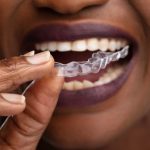Prevent Bone Loss in Teeth: Proven Techniques to Keep Your Smile Strong
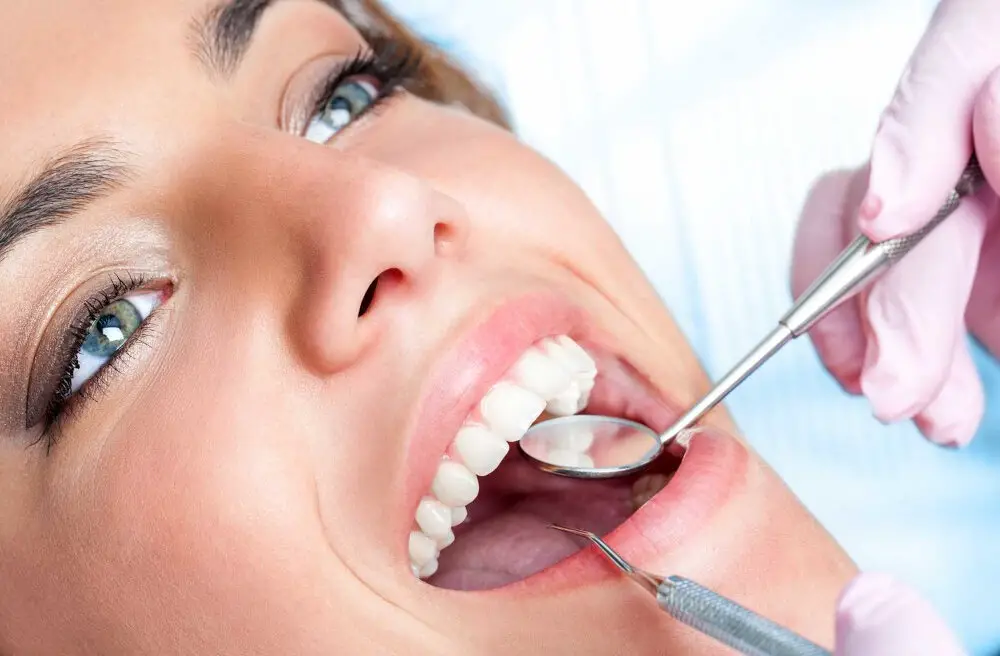
Bone loss in teeth is one of the most overlooked aspects of oral health, but it is also one of the most critical. As we age, our bones naturally lose density, which can lead to a host of issues including tooth loss, gum disease, and even jaw deformities. However, there are proven techniques that can help prevent bone loss in teeth and keep your smile strong and healthy. Proper dental hygiene is crucial in preventing bone loss in teeth. Brushing and flossing regularly can remove harmful bacteria that can lead to gum disease, which is one of the leading causes of bone loss in teeth. Additionally, using a fluoride toothpaste can strengthen teeth and prevent the onset of decay, which can also contribute to bone loss. Regular visits to the dentist are also essential in maintaining oral health and catching any issues early on before they progress into more severe problems. By following these simple steps, you can take control of your oral health and prevent bone loss in your teeth.
Bone loss in teeth, also known as alveolar bone loss, is a condition that occurs when the bone that supports the teeth starts to deteriorate. This condition often results from gum disease, which causes the gums to recede and expose the roots of the teeth. When the roots are exposed, the bone that supports the teeth becomes more vulnerable to infection and begins to break down. Over time, this can lead to loose teeth and eventually tooth loss. Bone loss in teeth is a serious condition that requires prompt treatment to prevent further damage to the teeth and surrounding tissues. Fortunately, there are proven techniques to prevent bone loss in teeth and keep your smile strong, which can help you maintain optimal oral health and prevent costly dental procedures in the future.
Preventing bone loss in teeth is important for maintaining strong and healthy teeth. When the jawbone deteriorates due to bone loss, the teeth can become loose and eventually fall out. This can result in difficulty eating and speaking, as well as a less attractive smile. Bone loss can be caused by a variety of factors, including poor oral hygiene, smoking, and certain medical conditions. To prevent bone loss, it is important to maintain good oral hygiene habits, such as brushing and flossing regularly, as well as visiting the dentist for regular check-ups. In addition, eating a diet rich in calcium and vitamin D can help to strengthen bones and prevent bone loss. By taking these steps, individuals can ensure that their teeth remain strong and healthy for years to come.
Maintain a Healthy Diet
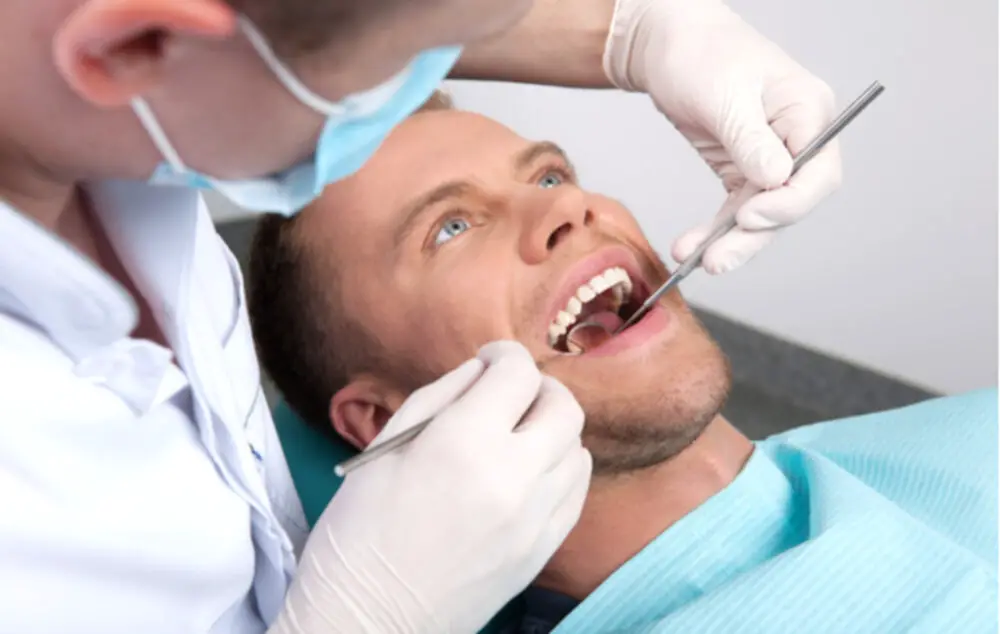
Maintaining a healthy diet is crucial to prevent bone loss in teeth. Consuming a balanced diet that is rich in nutrients, vitamins, and minerals is essential for the growth and maintenance of strong bones and teeth. Calcium is a vital nutrient for bone health, and it is present in dairy products, leafy greens, and almonds. Phosphorus is another essential nutrient for teeth and bone health, and it can be found in lean meats, eggs, and fish. A diet that is rich in Vitamin D is also crucial as it helps the body absorb calcium and promote bone growth. Vitamin D can be found in fatty fish, egg yolks, and fortified foods such as milk and cereals. Consuming a diet that contains a variety of fruits and vegetables can also provide the body with essential vitamins and minerals that are necessary for maintaining healthy teeth and bones. In contrast, consuming a diet that is high in sugar and processed foods can lead to tooth decay and bone loss. Sugar is one of the primary causes of tooth decay as it feeds the bacteria present in the mouth, leading to plaque buildup. This can eventually lead to cavities and tooth loss. Consuming a diet that is high in processed foods can also lead to inflammation, which can damage the bones and tissues in the body, including the teeth. Therefore, it is essential to follow a healthy diet that is rich in nutrients, vitamins, and minerals to maintain strong teeth and prevent bone loss.
A balanced diet plays a crucial role in maintaining healthy bones, including those in your teeth. Bones are living tissues that rely on a steady supply of nutrients, vitamins, and minerals to maintain their strength and density. Calcium, phosphorus, and vitamin D are some of the critical nutrients required for bone health, and a deficiency in any of them can lead to bone loss. Additionally, a diet high in sugar and acidic foods can cause tooth decay and erosion, damaging the bone structure that supports your teeth. Therefore, it is essential to eat a well-rounded diet that includes calcium-rich foods, such as dairy products, leafy greens, and fortified cereals, along with a variety of fruits and vegetables to ensure optimal bone health.
Maintaining strong bones is essential for preventing bone loss in teeth. To achieve this, it is important to consume foods that are rich in calcium, vitamin D, and other bone-healthy nutrients. Some recommended foods include dairy products such as milk, cheese, and yogurt, leafy green vegetables like kale and spinach, fatty fish like salmon and sardines, nuts and seeds like almonds and chia seeds, and fortified foods such as orange juice and breakfast cereals. It is also important to limit foods that can weaken bones, such as excessive amounts of alcohol and caffeine. By incorporating these recommended foods into your diet, you can help prevent bone loss and keep your teeth and smile strong.
To prevent bone loss in teeth, it is important to avoid foods that are high in sugar, salt, and acid. Sugary foods such as candy and soda can lead to tooth decay and weaken the enamel, making teeth more susceptible to bone loss. Similarly, salty foods can cause dehydration, which can lead to a dry mouth and increase the risk of tooth decay. Acidic foods such as citrus fruits and vinegar can erode the enamel, making teeth more vulnerable to decay and bone loss. It is also important to limit your intake of alcohol and caffeine, as they can dehydrate the body and lead to bone loss. Instead, focus on eating a balanced diet that is rich in calcium, phosphorus, and vitamin D to keep your teeth and bones strong.
Practice Good Oral Hygiene
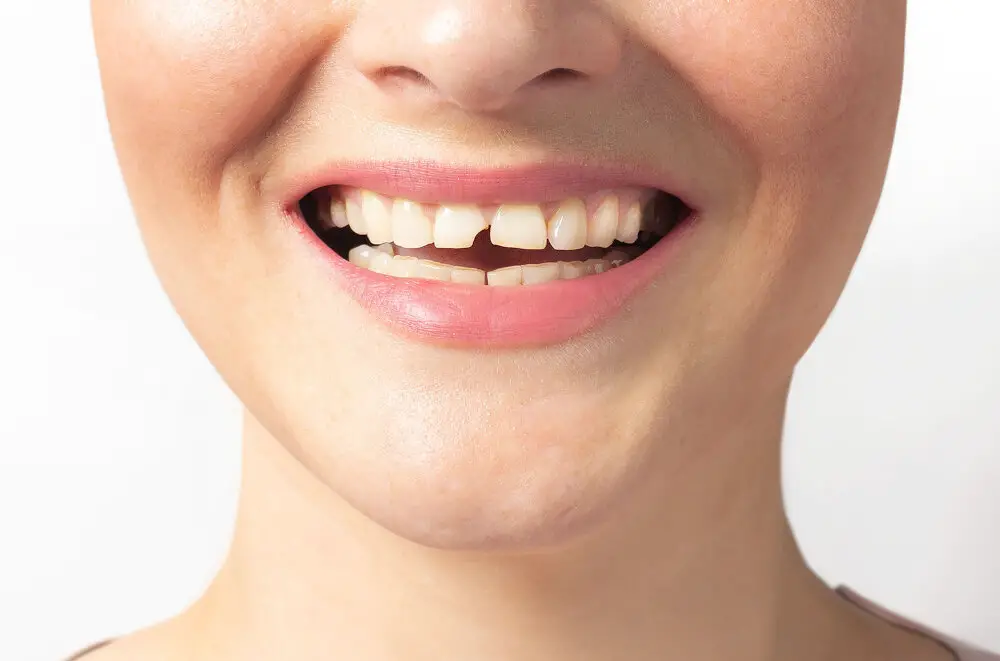
Maintaining good oral hygiene is crucial for preventing bone loss in teeth. Brushing your teeth twice a day with a fluoride toothpaste and flossing daily can help remove plaque and bacteria that can cause tooth decay and gum disease. It is also recommended to use an antiseptic mouthwash to kill any remaining bacteria. Regular dental check-ups and cleanings are essential for detecting any potential issues early on and preventing further damage to the teeth and gums. Neglecting oral hygiene can lead to bone loss in the teeth, which can cause tooth loss and other serious health problems. In addition to brushing and flossing, there are other measures you can take to prevent bone loss in teeth. Eating a healthy diet that is rich in calcium, vitamin D, and other essential nutrients can help keep your teeth and bones strong and healthy. Avoiding sugary and acidic foods and drinks can also help prevent tooth decay and gum disease. Finally, quitting smoking and limiting alcohol consumption can also help protect your oral health and prevent bone loss in teeth. By practicing good oral hygiene and making healthy lifestyle choices, you can keep your smile strong and prevent bone loss in teeth.
Oral hygiene plays a crucial role in maintaining the health of not just our teeth, but also our bones. Poor oral hygiene can lead to gum disease, which in turn can cause inflammation and infection. This inflammation can spread to the surrounding bone and cause bone loss. It is important to brush and floss regularly to remove plaque and prevent the buildup of harmful bacteria. Additionally, a healthy diet rich in calcium and vitamin D can help promote bone health. Regular dental checkups can also help catch any issues early and prevent further damage to both teeth and bones. By taking care of our oral health, we can ensure the strength and longevity of our teeth and bones for years to come.
Maintaining good oral hygiene practices is essential for preventing bone loss in teeth and keeping your smile strong. Brushing your teeth twice a day with a fluoride toothpaste is important to remove plaque and prevent cavities. Flossing at least once a day removes food particles and plaque from between teeth, where a toothbrush can’t reach. Using an antiseptic mouthwash can also help kill bacteria that cause gum disease. Regular dental checkups and cleanings are also crucial, as they allow your dentist to detect any issues early on and provide necessary treatment. By following these recommended oral hygiene practices, you can ensure that your teeth and gums stay healthy, which in turn can help prevent bone loss and keep your smile looking great.
Regular dental checkups are essential for maintaining good oral health and preventing bone loss in teeth. These checkups allow dentists to identify any potential issues early on, such as gum disease or cavities, before they become more serious. By catching these issues early and treating them promptly, patients can avoid more invasive and costly procedures down the road. Additionally, regular checkups can help identify and treat bone loss in teeth, which can lead to tooth loss if left untreated. By visiting the dentist at least twice a year, patients can ensure that their teeth and gums remain healthy and strong, and that any potential issues are addressed before they become more severe.
Quit Smoking

Smoking is a major risk factor for many health conditions, including bone loss in teeth. Cigarette smoke contains harmful chemicals that can damage the bone tissue in the jaw, leading to tooth loss and other dental problems. Quitting smoking is one of the most effective ways to prevent bone loss in teeth, as well as other serious health issues such as lung cancer and heart disease. It can be challenging to quit smoking, but there are many resources available to help individuals quit for good. Nicotine replacement therapy, counseling, and support groups can all be effective in helping smokers kick the habit. In addition to quitting smoking, there are other steps individuals can take to prevent bone loss in teeth. Eating a healthy diet rich in calcium, vitamin D, and other essential nutrients is important for maintaining strong bones. Regular exercise can also help keep bones healthy and prevent bone loss. It is also important to practice good oral hygiene habits, such as brushing and flossing regularly, to prevent gum disease and other dental problems that can lead to bone loss in teeth. By taking these steps, individuals can keep their smile strong and healthy for years to come.
Smoking is known to have detrimental effects on overall health, and it also has a significant impact on bone health. Smoking causes a reduction in bone density, which can lead to osteoporosis and an increased risk of fractures. Nicotine in tobacco smoke inhibits the production of new bone tissue, while also accelerating the breakdown of existing bone tissue. Additionally, smoking impairs blood flow to the bones, which can hinder the delivery of essential nutrients to the bone tissue. All of these factors contribute to weakened bones, which can result in tooth loss and other serious health concerns. Quitting smoking is essential for maintaining strong teeth and bones, as well as overall health and well-being.
Smoking is a hazardous habit that can lead to various health complications, including bone loss. Cigarette smoke contains numerous toxic chemicals that affect the body’s ability to absorb calcium, a vital mineral for bone health. Smoking also impairs blood circulation, which reduces the amount of oxygen and nutrients that reach the bones. As a result, smokers are at a higher risk of developing osteoporosis, a condition characterized by weakened bones that are susceptible to fractures. In addition, smoking is known to reduce the effectiveness of treatments for bone loss, making it harder for individuals to maintain strong and healthy teeth. Therefore, it is crucial to quit smoking and adopt a healthy lifestyle to prevent bone loss and maintain a beautiful smile.
Quitting smoking is a challenging but essential step towards maintaining healthy teeth and preventing bone loss. Firstly, it is crucial to identify triggers that lead to smoking and to find alternatives to replace the habit. Secondly, setting achievable goals, such as reducing the number of cigarettes smoked daily, can help in gradually reducing nicotine dependence. Thirdly, seeking support from friends, family, or healthcare professionals can provide motivation and guidance throughout the quitting journey. Additionally, practicing stress-management techniques, such as exercise or meditation, can help in coping with withdrawal symptoms. Lastly, it is essential to remind oneself of the benefits of quitting, such as improved oral health and a reduced risk of developing chronic health conditions.
Exercise Regularly
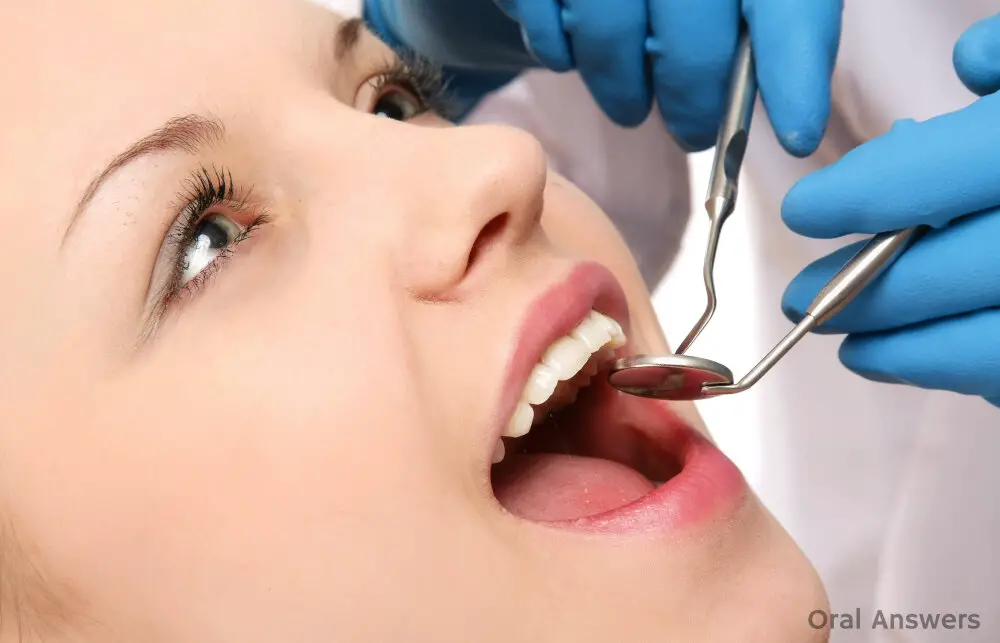
Regular exercise is not only good for your overall health, but it can also play a vital role in preventing bone loss in teeth. Physical activity helps to stimulate bone growth, which can strengthen the jawbone and reduce the risk of tooth loss. Studies have shown that people who exercise regularly are less likely to experience bone loss in their teeth than those who lead a sedentary lifestyle. Activities such as running, weightlifting, and even walking can help to improve bone density, which can, in turn, keep your smile strong and healthy. In addition to promoting bone growth, exercise can also improve circulation throughout the body, including the gums. This increased blood flow can help to nourish the gums and prevent gum disease, a leading cause of tooth loss. Exercise can also reduce inflammation, which is a common problem in people with gum disease. By reducing inflammation, exercise can help to prevent the destruction of gum tissue and keep your teeth firmly in place. So, if you want to keep your smile strong and healthy, consider adding regular exercise to your daily routine.
Exercise plays a crucial role in maintaining healthy bones, including those in your teeth. When you engage in physical activity, your bones are subjected to small amounts of stress, which triggers the production of new bone tissue. This process is known as remodeling, and it helps to keep your bones strong and healthy. Additionally, exercise can also increase bone density, which is essential for preventing bone loss and maintaining overall bone health. Weight-bearing exercises such as running, hiking, and weightlifting are particularly effective at improving bone health, as they place stress on the bones, stimulating the production of new tissue. By incorporating regular exercise into your routine, you can help prevent bone loss in your teeth and throughout your body, keeping your smile strong and healthy for years to come.
Maintaining strong bones is crucial for overall health, especially when it comes to dental health. Regular exercise can help prevent bone loss in teeth. Weight-bearing exercises such as walking, jogging, and weightlifting can help stimulate bone growth and strengthen bones. Resistance training, like using resistance bands or weight machines, can also be beneficial. Activities that improve balance, such as yoga or tai chi, can help reduce the risk of falls and fractures. It’s important to incorporate a variety of exercises into your routine to target different areas of the body and keep bones strong. By staying active and engaging in regular exercise, you can help prevent bone loss and maintain a healthy smile.
Weightbearing exercises are crucial in maintaining bone health, not just for teeth, but for the entire body. When we put weight on our bones, it signals the body to produce more bone cells, which helps strengthen bones and prevent bone loss. Additionally, weight-bearing exercises improve overall balance and coordination, reducing the risk of falls and fractures. These exercises can range from simple activities like walking or jogging to more intense weightlifting sessions. With regular weight-bearing exercises, bones become stronger and more resilient, improving our overall quality of life and reducing the risk of osteoporosis. So, make sure to incorporate weightbearing exercises into your daily routine to keep your smile strong and healthy.
Preventing bone loss in teeth is crucial for maintaining a strong and healthy smile. The jawbone provides the foundation for teeth, and without it, teeth can become loose and fall out. Bone loss can result from a variety of factors, including gum disease, poor dental hygiene, and aging. However, there are proven techniques to prevent and even reverse bone loss, such as maintaining good oral hygiene, quitting smoking, and consuming a diet rich in calcium and vitamin D. Additionally, regular dental check-ups and cleanings can detect and address any signs of bone loss early on. By prioritizing bone health, individuals can ensure their teeth remain firmly in place and their smile stays beautiful for years to come.
The article \Prevent Bone Loss in Teeth: Proven Techniques to Keep Your Smile Strong\ highlights various techniques that have been proven to prevent bone loss in teeth. Some of these techniques include maintaining a healthy diet rich in calcium and vitamin D, avoiding smoking and excessive alcohol consumption, practicing good oral hygiene by brushing and flossing regularly, and visiting the dentist for regular check-ups and cleanings. Additionally, weight-bearing exercises and supplements such as fluoride and calcium can also aid in preserving bone density. By implementing these techniques, individuals can prevent the loss of bone in their teeth, leading to a stronger, healthier smile.
Maintaining a strong and healthy smile is not just about looking good, it’s also about maintaining good oral health. Bone loss in teeth can lead to various dental problems that can be both painful and costly. However, the good news is that there are proven techniques that can help prevent bone loss in teeth and keep your smile strong. These techniques include practicing good oral hygiene, eating a balanced diet, avoiding smoking and excessive alcohol consumption, and getting regular dental check-ups. By implementing these techniques, you can not only prevent bone loss in teeth but also maintain a healthy and beautiful smile for years to come. So, don’t wait any longer, start taking care of your oral health today!
Conclusion
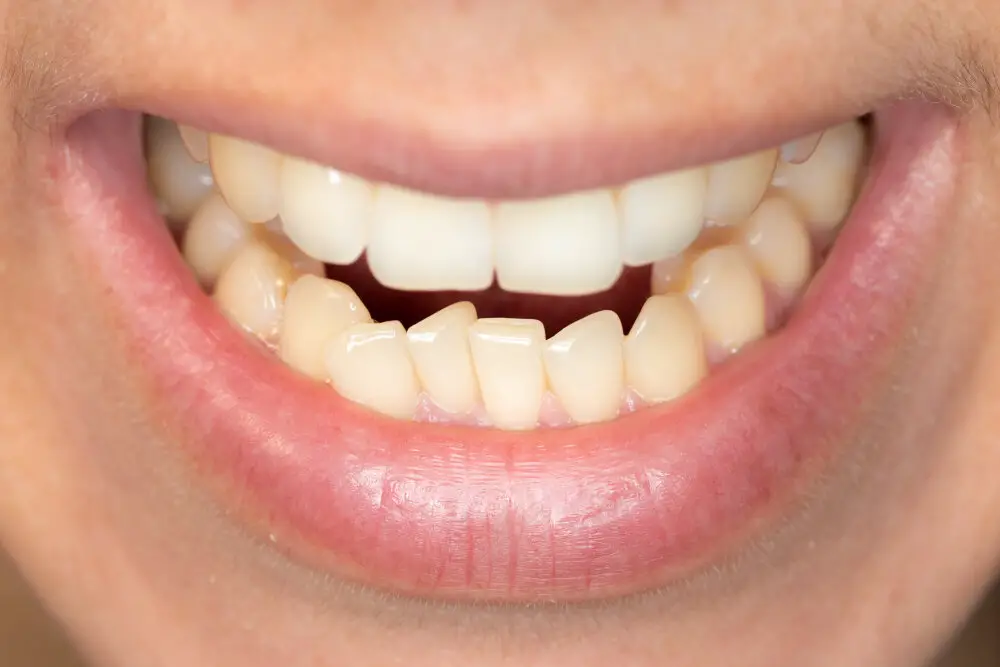
In conclusion, preventing bone loss in teeth is essential to maintaining a strong and healthy smile. By incorporating proven techniques such as a balanced diet, regular dental check-ups, and proper oral hygiene practices, individuals can minimize the risk of bone loss and preserve their teeth for years to come. Taking care of our teeth is not only important for aesthetic reasons but also for our overall health and well-being. It is never too late to start taking care of your teeth and preventing bone loss, so make sure to prioritize your dental health and smile confidently.
